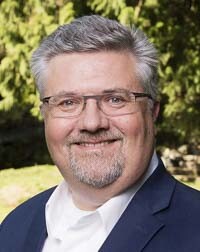
Mark Harmsworth of the Washington Policy Center says that eventually the money will run out
Mark Harmsworth
Washington Policy Center
An extensive study published by the National Bureau of Economic Research (NBER) concludes that Universal Basic Income (UBI), the government gifting of taxpayer dollars, doesn’t have the effect that proponents of forced re-distribution of wealth would have hoped for. In fact, the opposite is true.

UBI promises a government guaranteed income which is supposed to improve the economic situation of those receiving the money, typically median or lower income families. The NBER study, however, demonstrates that over time, recipients will work and earn less. Instead of increasing income, human nature kicks in and shows that if someone receives a free government handout of other people’s money, the incentive to work hard, evaporates.
The report shows that recipients’ income decreased an average of 12%, despite the additional free cash. For unemployed UBI recipients, the time between jobs increased as respondents said there was less pressure to find a new position quickly.
While a part of the conclusion from the study indicates minor changes in the amount of entrepreneurial activity, the main effect is a disincentive to work and a loss of income. “Virtually all existing large-scale cash transfer programs in the U.S. are means-tested, which provides additional disincentives to work. Rather than being driven by such program features, participants in our study reduced their labor supply because they placed a high value, at the margin, on additional leisure.” – National Bureau of Economic Research.
Universal Basic Income is a socialist concept that takes money from those that earn money through hard work and investment and gives that money to others. UBI creates an incentive for recipients to work less and ultimately, make less income and creates a false impression of economic stability. Those who work to provide the tax dollars to fund UBI will either move to another political jurisdiction to avoid paying more taxes or find a way to pay less taxes through legal deductions in the tax code. Even the recipients of UBI, will pay less taxes as they are working less, exasperating the funding situation for the state.
Arnold Kling, long a proponent of UBI as a replacement for government handouts, acknowledges the study’s conclusions. Kling argues that the current collection of government programs is unfair as benefits are removed when a recipient’s income reaches a certain threshold. Kling states that UBI would be a fairer way to provide benefits as it’s not subject to a means test. The whole point of a threshold, however, is to avoid giving money to those who have sufficient income to make ends meet. While Kling is correct regarding the current crop of government handouts not being a stable or efficient use of taxpayer dollars, UBI is not the answer. Many charities already help those in need, without the need for big government oversight.
UBI is a big government solution to a problem that the government itself created. Instead of forcing taxpayers to pay for more government programs, government can reduce regulations and increase incentives for businesses to create new jobs. Workers will receive the income and incentive to work they need.
As the famous British Prime Minister Margaret Thatcher once said, “The problem with socialism is that you eventually run out of other peoples’ money.” The same is true for UBI.
Eventually the money will run out.
Mark Harmsworth is the director of the Small Business Center at the Washington Policy Center.
Also read:
- POLL: Why did voters reject all three tax proposals in the April 22 special election?Clark County voters rejected all three tax measures on the April 22 special election ballot, prompting questions about trust, affordability, and communication.
- Opinion: The war on parental rightsNancy Churchill argues that Olympia lawmakers are undermining voter-approved parental rights by rewriting key legislation and silencing dissent.
- Opinion: An Earth Day Lesson – Last year’s biggest environmental victories came from free marketsTodd Myers argues that Earth Day should highlight free-market solutions and grassroots innovation as more effective tools for environmental stewardship than top-down mandates.
- Opinion: Time to limit emergency clauses and give voters a choiceTodd Myers urges the governor to remove emergency clauses from bills that appear intended to block voter input rather than address real emergencies.
- Letter: C-TRAN Board improper meeting conductCamas resident Rick Vermeers criticizes the C-TRAN Board for misusing parliamentary procedure during a controversial vote on light rail.










